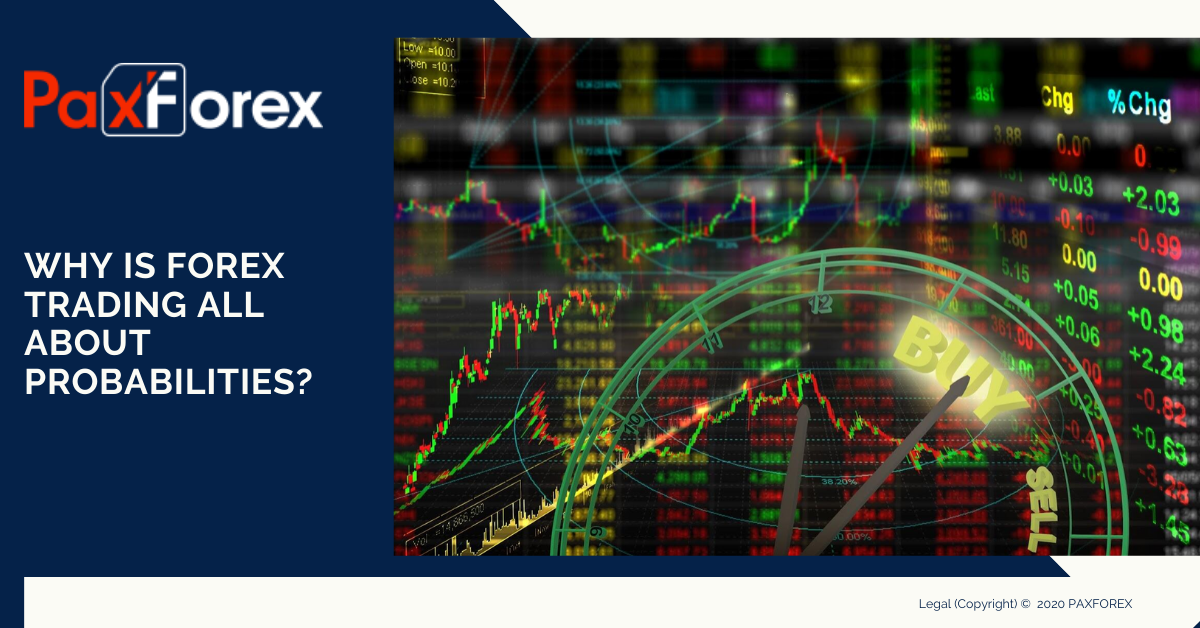
Understand the concept of probability is to know your chances of survival given your chosen trading systems. Trading is a game of probabilities in which when we are trading well, we still win and lose. A loss does not necessarily mean we made the wrong decision, it is just a reflection of market randomness. To cut through random market behavior, we must learn to think and trade in probabilities. Good forex traders analyze the markets and speak in terms of probabilities, not sure things.
In reality, experienced traders usually speak in probabilities and typically have some form of analysis to back up their opinion. No one can say that a particular currency pair will move to an exact point with absolute certainty. In fact, it is naive to think that anyone can predict the direction of a currency pair with absolute certainty over a given period of time. Sure, sometimes you could be correct if you boldly predict that a pair will move to X level with absolute certainty. However, there will be other times when the market doesn't go your way.
One of the very first snippets of market knowledge is that none of us ever really know what is going to come next. We may have an idea and be able to occasionally be right more than wrong for a period of time, yet in the long run, it is impossible to be right one hundred percent of the time. When we can accept this simple fact and learn to develop a trading system and methodology that puts the probability on our side to some degree, we can then look to improve our overall rate of success and potential gains in our trading.
Using high probability forex trading strategies has enormous advantages for the trading psychology. First of all, it does not cost a trader any money. Most importantly, traders do not have to worry about missing a setup, chasing a setup, entering a setup too soon, etc. It is an enormous help for remaining patient and keeping the discipline needed to succeed in trading. Plus traders can avoid revenge trading by keeping a cool mindset. Taking too many doubtful trades can easily lead to overtrading which leads to a slippery slope where a trader wants to earn back their money quickly.
Obviously, people do make money in the markets, and it is not just because they have had a good run. Professional traders are not worried about the next trade winning or losing. What they care about is making money long term and over time. They want to maximize their profits by playing the mathematics by thinking in probabilities. Although beginning traders hang their entire psychology, confidence, and performance on the next trade you have to look at the next one as just one free throw in the thousands you will make over time.







